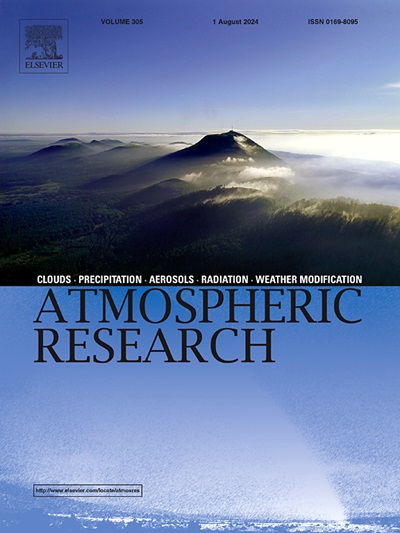Why have extreme low-temperature events in northern Asia strengthened since the turn of the 21st century?
IF 4.5
2区 地球科学
Q1 METEOROLOGY & ATMOSPHERIC SCIENCES
引用次数: 0
Abstract
This study reveals that the intensity of cold-season (October–March) extreme low-temperature events (ELTs) during 1982–2022 strengthened after the year 2000 over northern Asia, along with a decrease in their frequency. Two significant interdecadal changes in cold-season atmospheric circulations after the year 2000 were found to be associated with these changes. Firstly, there has been an increased occurrence of extremely strong blocking highs over the North Atlantic, promoting anomalous meridional circulation. Secondly, the upper-level jet stream has weakened, reducing the polar vortex and strengthening the cold polar air that erupts southward. Statistical analysis and model experiments suggest that the positive phase of the Atlantic Multidecadal Oscillation after the year 2000 may have contributed to the strengthened ELTs by causing deep warming over the North Atlantic. The direct thermodynamic effects of deep warming intensify the blocking high over the North Atlantic. Simultaneously, an anomalous easterly wind appears in the upper troposphere due to thermal wind theory, and the weakened jet stream results in a stronger meridional flow, leading to an extremely strong blocking high.求助全文
约1分钟内获得全文
求助全文
来源期刊

Atmospheric Research
地学-气象与大气科学
CiteScore
9.40
自引率
10.90%
发文量
460
审稿时长
47 days
期刊介绍:
The journal publishes scientific papers (research papers, review articles, letters and notes) dealing with the part of the atmosphere where meteorological events occur. Attention is given to all processes extending from the earth surface to the tropopause, but special emphasis continues to be devoted to the physics of clouds, mesoscale meteorology and air pollution, i.e. atmospheric aerosols; microphysical processes; cloud dynamics and thermodynamics; numerical simulation, climatology, climate change and weather modification.
 求助内容:
求助内容: 应助结果提醒方式:
应助结果提醒方式:


